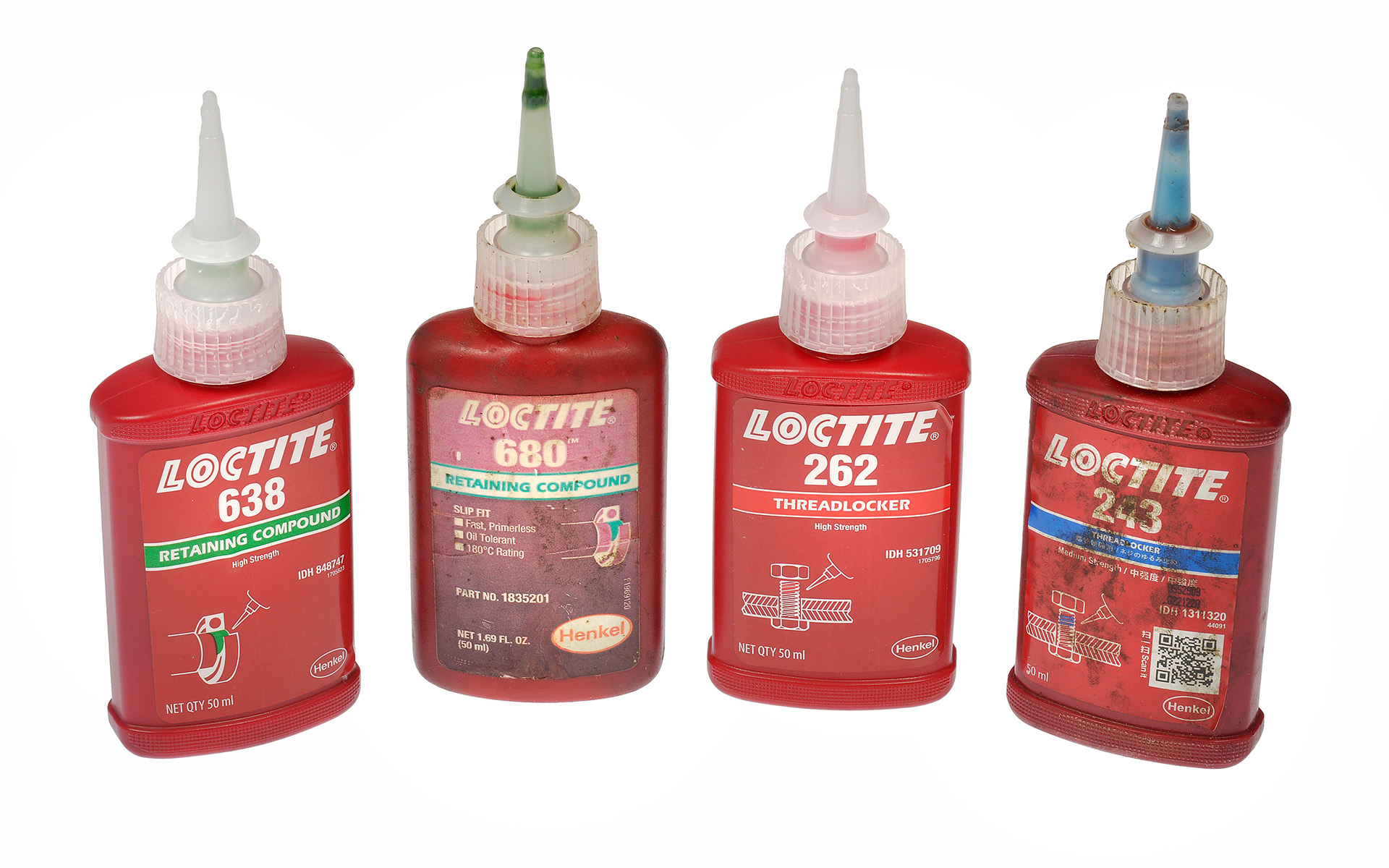“Drive it ‘til the wheels fall off” isn’t the safest decision. So when does it end?

Loctite’s threadlocking compounds are used by automotive professionals everywhere to secure critical fasteners. Unfortunately, Loctite’s popularity has resulted in a wave of counterfeit products that can look remarkably like the real deal.
Everything from the bottle, to the branding, to the threadlocking compound itself is intended to deceive the casual eye.
Repair professionals use Loctite on a regular basis, and it’s regularly specified in OEM manuals. But, both mechanics and vehicle owners should be aware of potentially fraudulent adhesives on the market and know how to spot them. The fake stuff isn’t just dishonest – it’s dangerous. Loctite’s own testing shows that counterfeit threadlockers do not perform nearly as well as the genuine stuff, like in this comparison video. (Test starts at 6:32.)
At the very least, hundreds of thousands of fake Loctite bottles have been made for sale to unwitting customers. In 2019, Shanghai police busted a large counterfeit threadlocker operation with over 100 individuals suspected of ripping off Loctite’s packaging and products. Xinhua News, China’s official state news agency, reported “the seizure of more than 470,000 fake Loctite products and labels worth around $7.1 million.” Police reported that this specific group had been active since at least the previous year.
The fakes seem to be most prevalent in online sales. Stock images of genuine products can be used to help sell copycat bottles.

Here’s a sampling of Loctite bottles from my home garage. The bottle on the right is the newest, and it has a QR code on the label. But when the code was scanned, it did not pass Loctite’s authenticity test, so it will be retired. Photo: Mike Apice.
If you purchased your Loctite from somewhere other than an authorized dealer, there is a chance that you are reaching for a bottle of unknown goop in your shop instead of a real threadlocking compound. Henkel Adhesives, the company that manufacturers Loctite, is aware of the problem and has taken steps to make their products harder to clone. These measures only work if you know about them, though, so here are a few things to look for if you have a suspicion about your shop’s supply.
Some of the fake Loctite products are easy to spot if you are familiar with the brand’s lineup. In one instance, a sharp-eyed Loctite user noticed a bottle of “641” Loctite retaining compound with a label that claimed to be the high-strength formula. This was an obvious fake, because the high-strength version comes in the 648 bottle.
Physical differences can be a dead giveaway that a questionable Loctite bottle is an imposter. Some of the knockoff tip designs are different, as shown by a YouTuber who torque-tested authentic Loctite against some “LocTTLF.” His tests also showed that the genuine Loctite was significantly better at holding a nut to a bolt, which is… the entire point of using threadlocking compounds, right? The fakes wouldn’t be quite so concerning if they at least performed the same as the real stuff.
Some Loctite products feature anti-counterfeit QR codes. Each one is unique, and you can easily check its authenticity by scanning the code, which will prompt a “verify product” link. If you buy two bottles and they have the same QR code, or other identifying marks like serial numbers, then that should tip you off that they are probably frauds.
If a deal on Loctite seems too good to be true, it probably is. This is especially true when buying online. Anyone who purchases Loctite regularly is aware that the usual sources won’t vary much on price. Steep discounts can be enticing, but there are no savings when the product you receive is not the product you ordered.
I reached out to Henkel for some more details on the fakes. Of course, Henkel’s technical team recommended fully testing any suspicious adhesive to make sure that it performed as expected. That’s a fine solution for a production environment with fancy testing equipment ready to go, but what are average auto techs supposed to do?
“Visually, I believe that beyond the features of the bottle, identifying a proper batch code and ‘use by’ date on the back of the bottle would be [worth a] check,” says Michael Feeney, a lead application engineer at Henkel. “Additionally, they could ask for a certificate of analysis to the corresponding batch code to confirm it isn’t just a made-up batch code.”
Not sure where to start with that? Drop Henkel a line here if you think you’ve got a fake, and consider buying from another source next time.
The articles and other content contained on this site may contain links to third party websites. By clicking them, you consent to Dorman’s Website Use Agreement.
Participation in this forum is subject to Dorman’s Website Terms & Conditions. Please read our Comment Policy before commenting.